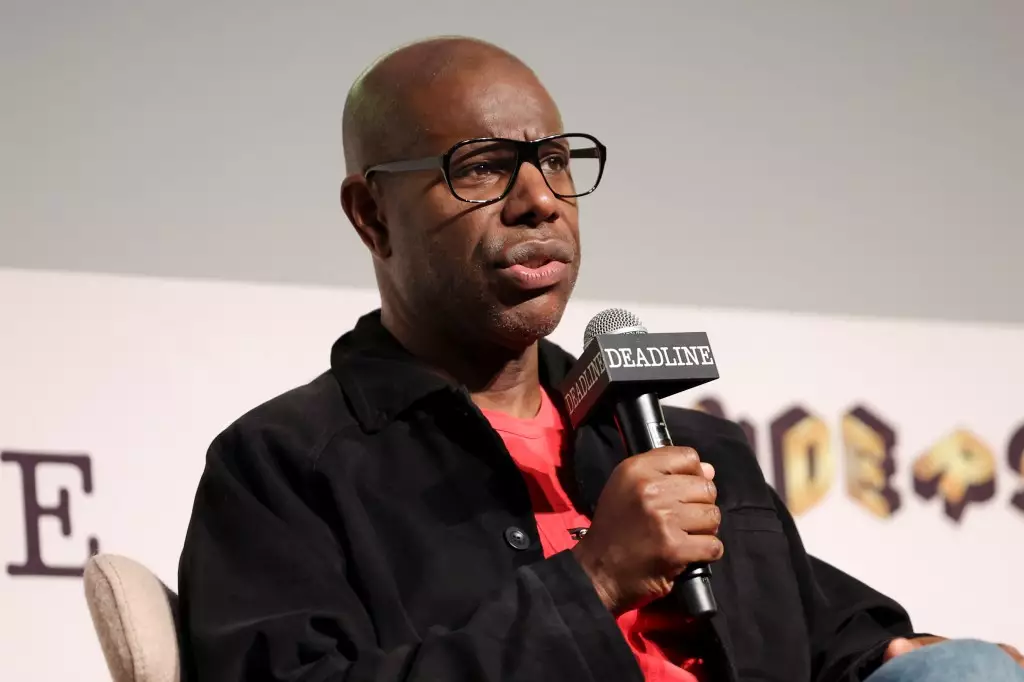In an era where World War II narratives have been extensively explored, filmmaker Steve McQueen is making waves with his unique approach to storytelling. Instead of following the traditional routes of grand military battles or political intrigue, McQueen opts to center his latest project, *Blitz*, around the eyes of a child, challenging audiences to engage with the past in a manner that evokes both empathy and introspection. The shift from adult perspectives to a child’s view is not merely a storytelling technique; it serves as a poignant reminder of how trauma impacts individuals differently and how innocence can illuminate the darkest corners of human experience.
McQueen’s vision emphasizes the importance of maintaining childlike curiosity and perspective, something often lost in the adult world, especially during tumultuous times like war. In a conversation at Deadline’s Contenders Film: Los Angeles, he shared his desire to evoke a renewed understanding of war narratives, suggesting, “At what point did we start to compromise? At what point did we stop listening?” These questions compel audiences to reflect on their own loss of innocence and awareness over time. Engaging viewers through the innocence of youth allows for a potent exploration of the contrasts between a child’s imagination and the grim realities of wartime.
The heart of *Blitz* is captured through the character of George, a 9-year-old boy who, faced with the horrors of World War II London, is sent to the English countryside for safety. Portrayed by Elliot Hefferman, George’s defiance and determination to return home become pivotal to understanding the human spirit amid chaos. His quest serves as more than just a child’s adventure; it highlights the desperation of families torn apart by war. Meanwhile, George’s mother, Rita—played by the talented Saoirse Ronan—embarks on her harrowing journey, searching for her lost child, representing the emotional toll of conflict on parents who must endure separation from their children.
In showcasing George’s perspective, McQueen hopes to highlight the profound impact of war on innocent lives, emphasizing that historical events are not merely statistics or generalized heroes, but rather a collection of deeply personal stories. Children, often overlooked in broader discussions about war, provide a fresh voice that can articulate the dread and confusion that envelop adults. This choice by McQueen may serve to rekindle the audience’s sense of empathy, prompting them to reconsider what is often accepted as mere historical fact.
To authentically portray the lived experience of her character, Saoirse Ronan undertook extensive work with a dialect coach to embody the East London accent of the 1940s. The deliberate choice to focus on a specific cultural element—the Cockney accent—adds an additional layer of depth to the film, allowing for a more genuine connection to the historical context. Ronan described the vintage sound of the dialect as something that imbues her character with authenticity, as it reflects not only the regional identity but also the resilience and hopes of working-class women during that time.
Ronan’s insights highlight the broader theme of how art and authenticity serve to enhance storytelling. By capturing the nuances of speech and behavior from a bygone era, McQueen and his cast invite viewers to fully immerse themselves in a time that demands both respect and understanding. The physicality of a character’s speech can express emotions and histories that words alone cannot convey, making it an essential tool for actors like Ronan in connecting with their characters authentically.
Ultimately, *Blitz* serves as an important reminder that even after decades of storytelling, there is always room for innovation and deeper exploration of history. By reframing World War II through the lens of childhood, Steve McQueen not only revitalizes the narrative but also honors the voices of those often marginalized in historical discourses. This poignant retelling compels audiences to confront their own perceptions while fostering understanding and compassion for the experiences of others—particularly those of children caught in the turbulent tides of conflict.
As we reflect on our histories, the need for stories told through innocent eyes remains vital; they remind us of humanity’s core, the fragility of life, and the enduring hope that persists, even in the darkest times. McQueen’s *Blitz* exemplifies the power of storytelling to bridge generational divides, urging viewers to reconnect with their own childlike wonder and empathy for those affected by the horrors of war.

Leave a Reply